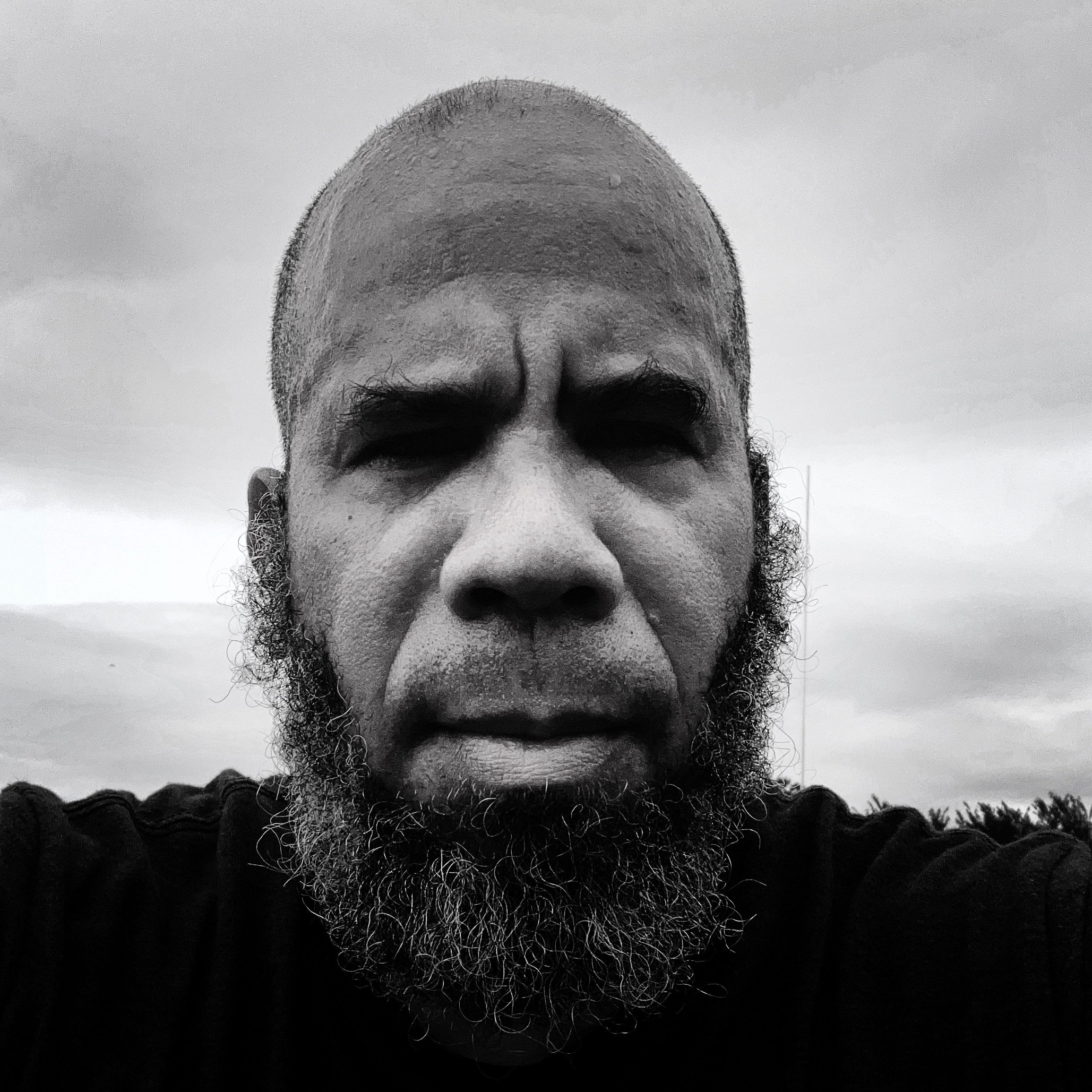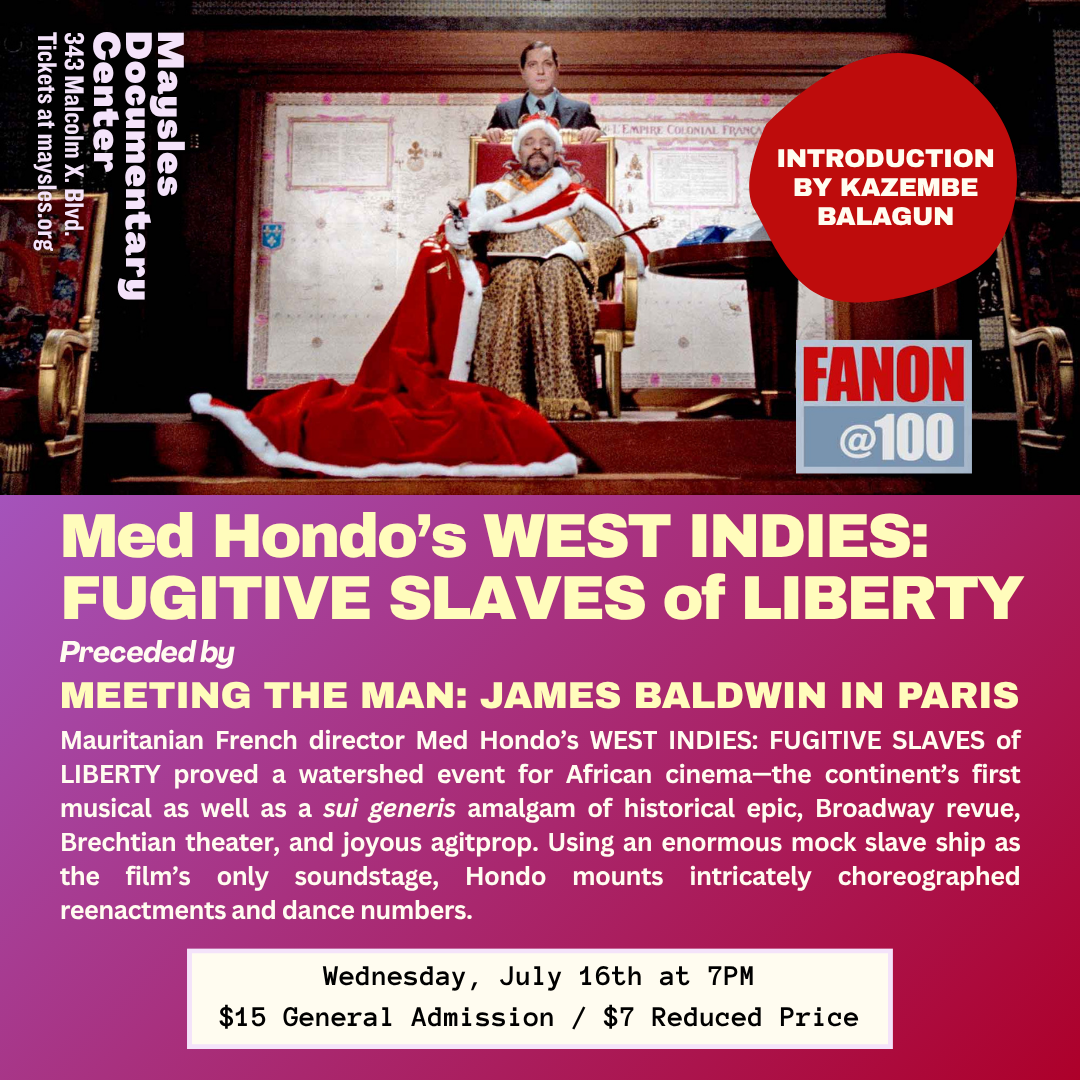IN CINEMA
Tuesday, June 3rd at 7PM
Pride at Maysles
Pride at Maysles: Tongues Untied, Affirmations, and Anthem
TONGUES UNTIED
Marlon Riggs, 1989, 55 min.
The seminal documentary on Black gay life, Emmy Award-winning director Marlon T. Riggs’ 1989 TONGUES UNTIED uses poetry, personal testimony, rap, and performance (featuring poet Essex Hemphill and others), to describe the homophobia and racism that confront Black gay men.
The stories are fierce examples of homophobia and racism: the man refused entry to a gay bar because of his color; the college student left bleeding on the sidewalk after a gay-bashing; the loneliness and isolation of the drag queen. Yet they also affirm the Black gay male experience: protest marches, smoky bars, “snap diva,” humorous “musicology,” and Vogue dancers.
A quarter of a century after its release, director Marlon T. Riggs’ documentary, winner of the Los Angeles Film Critics Award, and Best Documentary prize at the Berlin Film Festival, is as relevant as ever.
AFFIRMATIONS
Marlon Riggs, 1990, 10 min.
An exploration of Black gay male desires and dreams, Affirmations starts with an affectionate, humorous confessional and moves on to a wish for empowerment and incorporation.
ANTHEM
Marlon Riggs, 1991, 9 min.
Marlon Riggs’ experimental music video politicizes the homoeroticism of African-American men. With sensual, sexual, and defiant images and words intended to provoke, ANTHEM reasserts the “self-evident right” to life and liberty in an era of pervasive anti-gay and anti-Black backlash and hysterical cultural repression.
+ Post-screening discussion with Dr. Kathryn T. Hall, Dr. Jafari Allen, and Steven G. Fullwood!
Kathryn T. Hall, PhD, MPH, is the Senior Vice President, Research. Dr. Hall was most recently the Deputy Commissioner for Population Health and Health Equity at the Boston Public Health Commission, the health department for the city of Boston. After receiving her PhD in Microbiology and Molecular Genetics from Harvard University she spent 10 years in the biotech industry tackling problems in drug discovery and development where she became an Associate Director of Drug Development. Dr. Hall then returned to Harvard Medical School, joining the Fellowship in Integrative Medicine at Beth Israel Deaconess Medical Center and received her Master of Public Health from Harvard T. H. Chan School of Public Health. Dr. Hall is an Assistant Professor, part-time in medicine at Harvard Medical School and Associate Molecular Biologist in the Division of Preventive Medicine at Brigham and Women’s Hospital. Her academic research focuses on the placebo effect and in particular how the absence of placebo and presence of nocebo effects influences health equity. Dr. Hall is the author of Placebos, MIT Press and has a Masters in Documentary Film from Emerson College.
Jafari Sinclaire Allen is Professor of African American and African Diaspora Studies, in the Department of African American and African Diaspora Studies (AAADS) at Columbia University, where he is the Director of the Institute for Research in African American Studies (IRAAS), and Editor-in-Chief of Souls: A Critical Journal of Black Politics, Society, and Culture.
His latest book, There’s a disco ball between us: a theory of Black gay life was published by Duke University Press in 2022. A social-cultural anthropologist and critical ethnographer by doctoral training, Dr. Allen’s work pursues generative connections and disarticulations among anthropology, feminist and queer studies, and Black studies, through a re-signification of the methodologies, theories, politics, and habits of mind of each of these sites. Engaged in ethnographic research in Cuba and the Caribbean since 1998, he has transnational research interests in a number of other sites in the Americas. Recent research has also taken him to East Africa and Western Europe. Professor Allen is also the author of ¡Venceremos?: The Erotics of Black Self-Making in Cuba; editor of Black/Queer/Diaspora; and “The Anthropology of ‘What is Utterly Precious’: Black Feminists, Black Queer Habits of Mind, and the ‘Object’ of Ethnography,” in the forthcoming Unsettling Queer Anthropology: Foundations, Reorientations, and Departures, edited by Margot Weiss. His recent reflections on art can be found in a 2023 conversation with Shamel Pitts at the Museum of Contemporary Art, Chicago, and a chapter in Lyle Ashton Harris: Ektachrome Archive, published in 2022 by the Institute for Contemporary Art (ICA), Miami based on his Animating Archives seminar at ICA; where he and Gean Moreno curated the museum’s 2019 semester “The Black Hemisphere” He wrote the new introduction (“Crucial Palimpsest: Re-Reading Brother to Brother”) to Brother to Brother: New Writings By Black Gay Men, originally edited and introduced by Essex Hemphill, and a number of other publications.
Steven G. Fullwood is co-director of the Nomadic Archivists Project (with Miranda Mims), a pioneering initiative that partners with individuals, community groups, organizations, and institutions to establish, preserve, and enhance collections that illuminate the global Black experience. He is also co-editor of the new anthology, Artists As Writers (with Seph Rodney), which offers 32 succinct first-person narratives by writers of varied genres about the day-to-day life of writing for a living.
Tickets: $15 General Admission / $7 Reduced Price




















